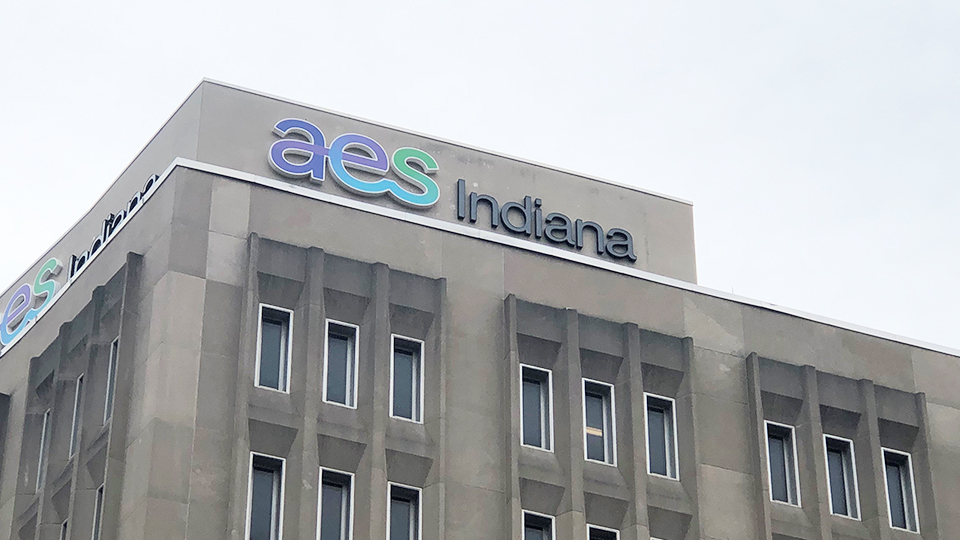AES Indiana reaches agreement to raise electricity rates 7.3%
Subscriber Benefit
As a subscriber you can listen to articles at work, in the car, or while you work out. Subscribe Now
Electric utility AES Indiana has reached a settlement agreement that would raise monthly rates next year by approximately 7.3% for the average residential customer but would clamp down on the utility’s disconnection practice and offer other consumer protections.
AES Indiana, formerly known as Indianapolis Power & Light Co., announced the agreement Wednesday evening before the Thanksgiving holiday. The agreement, signed by consumer groups and a wide assortment of large customers, still needs approval from state regulators.
The utility said it plans to use the money for what it called rising operational costs, tree-trimming and other needs.
“We have a commitment to our customers and community to ensure safe, reliable electricity at an affordable price,” Ken Zagzebski, the utility’s president and CEO, said in written remarks. “This agreement is a critical step forward to make certain the necessary investments continue, creating meaningful reliability improvements in how we serve our customers.”
The deal, if approved by the Indiana Utility Regulatory Commission, would raise monthly rates by $9.52 or approximately 7.3% for the average residential customer using 1,000 kilowatt hours a month, the utility said. That’s less than its initial proposal, submitted in June, that would have raised rates by about $17 a month, or 13%.
The utility’s initial proposal provoked widespread objections, including from more than 40 customers who attended two field hearings.
Citizen Action Coalition of Indiana, a utility watchdog group, had criticized AES Indiana for seeking a rate hike just two years after the utility got approval to spend $1.2 billion to upgrade its local energy grid. That approval set the stage for the approval of seven straight years of rate increases to pay for the improvements.
The consumer group also faulted AES Indiana for disconnecting more households across the state in recent years than any of its peer utilities.
In response, AES Indiana has agreed not to disconnect service for any residential customer on Fridays, Saturday, Sundays and eight holidays (New Year’s Day, Memorial Day, Independence Day, Labor Day, Thanksgiving Day, the Friday after Thanksgiving, Christmas Eve and Christmas Day).
It also agreed that it would not charge for a remote disconnection with newly installed “smart meters,” and would charge only $3 for a remote reconnection. The utility had wanted to charge $8 for a remote disconnection and another $8 for a remote reconnection, according to Citizens Action Coalition.
“We are pleased with the proposed settlement and believe that it reflects a positive outcome for customers that may not have been achieved through litigation,” Kerwin Olson, the group’s executive director, told IBJ in an email.
The utility also agreed to waive disconnection and reconnection fees for low-income home energy assistance program customers once per rolling 12-month period. It also agreed to waive the late-payment charge on a late bill once per rolling 12-month period for any customer.
In addition, AES Indiana will hold the fixed charge for residential bills at $17 a month, instead of increasing it to $25 for most residential customers, as it originally proposed. Fixed charges are applied to customers regardless of how much electricity they use.
The utility agreed to meet with Citizens Action Coalition and OUCC regarding education and outreach practices for Medical Alert and Medical Hold Programs, including the service status of these customers during system-wide outages.
The deal, if approved, would increase the utility’s total annual revenue by $72.9 million or 4.6%, according to the Indiana Office of Utility Consumer Counselor, a state agency that represents all consumers in cases before utility regulators. That’s a sharp cut from its original request that would have increased annual revenue by $134.2 million, or 8.4%.
The utility had said the request was its first base rate increase request in five years and came as a result of “inflationary impacts” on operations and maintenance expenses, investments in reliability and enhancements to customer systems. Base rates allow utilities to recover the cost of investments in infrastructure and operating expenses.
The proposed agreement was signed by AES Indiana, the city of Indianapolis, grocery retailer Kroger Co., discount retailer Walmart, jet engine maker Rolls-Royce Corp., Citizens Action Coalition, the Office of Utility Consumer Counselor, and the AES Indiana Industrial Group, which represents large industrial customers.
State regulators will review the settlement agreement next month and are expected to issue a ruling in early 2024. If approved, the new rates would go into effect next summer.
AES serves about 500,000 customers in central Indiana. It is a unit of Arlington, Virginia-based AES Corp.
